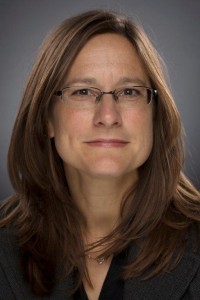English / French

AIC 2016 promises to engage participants and stimulate lively debate on topics ranging from intellectual property protection, to modern agricultural extension strategies, and maximizing technology transfer to industry stakeholders.
Within each conference theme, participants can choose to attend one of two workshops. Participants will have the opportunity to hear from expert panelists and work with fellow conference goers to reach broad consensus on recommendations that will strengthen these important policy topic areas.
Note: Workshop 1-B is a training session.
Theme 1: Dissemination Strategies and Participation Channels for Agricultural Research
Research dissemination has become an increasingly social process, designed to bring together key stakeholders involved in agricultural research in a process of two-way information sharing. Around the world, new participatory communication frameworks are being introduced. Their focus is on the facilitation of stakeholder dialogue and the use of diverse dissemination strategies to engage end-users and build consumer trust.
In the Theme 1 workshops, Dissemination Strategies and Participation Channels for Agricultural Research, key issues arising from the communication of agricultural research in Canada will be summarized. This includes the development of new mechanisms for the dissemination of research and the use of various tools and techniques for the sharing and exchange of information among multiple actors.
Workshop 1-A: Dissemination Strategies and Policies Wednesday, April 13
A scientific breakthrough that could dramatically change how farmers harvest or manufacturers prepare a certain product is discovered in a lab: how do we get this vital information from the research lab to benefit the end user? This workshop will explore the policy opportunities and latest strategies associated with how researchers transfer and disseminate knowledge.
In this workshop, panelists and participants will:
1. Identify key policy challenges affecting the dissemination of research results in the agricultural sector.
2. Discuss best practices for communicating research results to end-users.
3. Assess the importance of new participatory dissemination strategies.
Time: 10:15 a.m.
Location: Victoria Ballroom North
Panelists:
Drew Black, Director of Environment and Science Policy, Canadian Federation of Agriculture
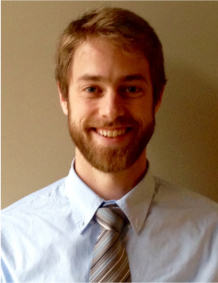 The Canadian Federation of Agriculture represents over 200,000 Canadian farmers and farm families and strives to provide a single voice for farmers at the federal level.
The Canadian Federation of Agriculture represents over 200,000 Canadian farmers and farm families and strives to provide a single voice for farmers at the federal level.
Drew Black has worked on environmental policy analysis and research for the past five years at the federal level on a wide range of files with sustainability implications. He sits on a number of different federal advisory committees and value-chain roundtables which seek to address environmental issues in agricultural production and improve sustainability.
Drew works to ensure that producers’ perspectives are heard and considered in the development of federal environmental legislation, regulation and policy and is currently involved in seeking greater recognition for the voluntary actions that producers are taking to limit their impact to the environment and improve sustainability. He has worked on a number of environmental research projects in the past and has more recently worked to coordinate the development of the CFA’s research policy and recommendations for the role of research within the next Agricultural Policy Framework.
Dr. Andreas Boecker, Associate Professor, University of Guelph
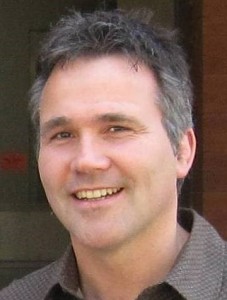 Dr. Andreas Boecker obtained his MSc and PhD degrees in agricultural economics at Kiel University, Germany. He has extensive experience in qualitative and quantitative research methods in market research. In 2005, Andreas joined the Department of Food, Agricultural and Resource Economics at the University of Guelph where he now is Associate Professor.
Dr. Andreas Boecker obtained his MSc and PhD degrees in agricultural economics at Kiel University, Germany. He has extensive experience in qualitative and quantitative research methods in market research. In 2005, Andreas joined the Department of Food, Agricultural and Resource Economics at the University of Guelph where he now is Associate Professor.
His research focuses on traceability in the food system, innovation in farm-direct marketing, consumers’ perceptions of food-related risks and communication about agricultural production technologies and practices. He teaches Food and Agricultural Marketing Management and Marketing Research and Analysis.
Tracy Herbert, Beef Extension Coordinator, Beef Cattle Research Council
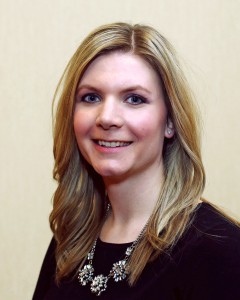 Tracy Herbert oversees the implementation of the Beef Cattle Research Council’s Knowledge Dissemination and Technology Transfer Strategy to accelerate the uptake of innovations in the beef industry related to production efficiencies, food safety, carcass quality, environmental stewardship and animal health. She manages www.BeefResearch.ca, a comprehensive science-based resource for beef industry stakeholders, and coordinates the development and utilization of various extension resources including fact sheets, decision-making tools, webinars and videos.
Tracy Herbert oversees the implementation of the Beef Cattle Research Council’s Knowledge Dissemination and Technology Transfer Strategy to accelerate the uptake of innovations in the beef industry related to production efficiencies, food safety, carcass quality, environmental stewardship and animal health. She manages www.BeefResearch.ca, a comprehensive science-based resource for beef industry stakeholders, and coordinates the development and utilization of various extension resources including fact sheets, decision-making tools, webinars and videos.
Tracy also coordinates the BCRC’s Beef Researcher Mentorship Program and works to improve collaborations that improve technology transfer in Canada’s beef industry.
She has Bachelor of Arts degrees in Psychology and Communications Studies from the University of Calgary. Her family operates a mixed farm with purebred cattle in Northwest Saskatchewan.
Workshop 1-B: Bridging the Gap Between Research and the Public – Training Session Wednesday, April 13
While agriculture research findings may not be discussed at dinner tables across the country, it affects Canadians on a daily basis, whether they know it or not. In our era of instant news, building public trust in research and effectively communicating it to the public has never been more important. This workshop will discuss how to take complex research findings and effectively communicate them to the public.
In this training session participants will:
1. Look at diverse communication techniques to translate complex research findings and effectively communicate them to different audiences.
2. Compare various tools and methods to engage the public and build greater consumer trust.
3. Discuss dissemination plans to encourage social engagement and acceptance of agricultural research.
Time: 10:15 a.m.
Location: Victoria Ballroom South
Panelists:
Gabrielle Bauer, Consultant, Award-winning writer
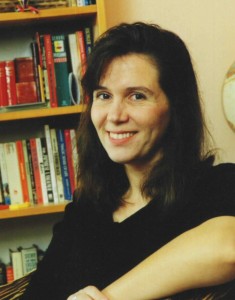
Gabrielle Bauer has been a freelance writer for the past 21 years. She writes magazine articles for a general audience and specialized materials for the healthcare, business, and environmental sectors. She has also written two books and received seven national writing awards.
Gabrielle has produced BioFuelNet’s Success Stories and has made presentations on effective science writing. She lives in Toronto.
Mary Ann Binnie, Manager, Nutrition & Food Industry Relations, Canadian Pork Council
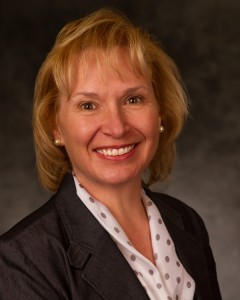
Mary Ann leads the nutrition strategy and communications for the Canadian Pork Council. In this role she has been involved in numerous nutrition and health policy initiatives. She is President of the Canadian Meat Science Association, ad hoc member of the Food Directorate’s Food Expert Advisory Committee and chairs the International Meat Secretariat’s Nutrition Committee.
Mary Ann is a professional home economist and lives in London.
Theme 2: Knowledge Transfer and Extension
As a primary tool for research dissemination, extension services are expected to result in the adoption of innovations by the agricultural sector. Along with other technology and knowledge transfer initiatives, extension services should contribute to getting innovative products directly into the hands of farmers and producers.
The Theme 2 workshops, Extension and Technology/Knowledge Transfer, will help participants assess the needs and opportunities for accelerating the adoption of innovative research in the agricultural sector by analyzing current issues in agricultural extension and other technology transfer mechanisms.
Workshop 2-A: Models of Extension in the 21st Century Wednesday April 13
In recent years, funding priorities for governments and other entities have shifted focus and led to a redefinition of the role of extension services for agricultural research. What used to have only a few players, suddenly has many more. This workshop will examine various extension models and collaborations and what the roles of these new players are in the 21st Century.
In this workshop, panelists and participants will:
Review different models of agricultural extension and the evolving roles and responsibilities of academia, agrology professionals, farmers, government, industry and producer-led organizations.
Time: 2:45 p.m.
Location: Victoria Ballroom North
Panelists:
René Mongeau, Agronomist, President, Ordre des agronomes du Québec (Quebec Order of Agrologists)
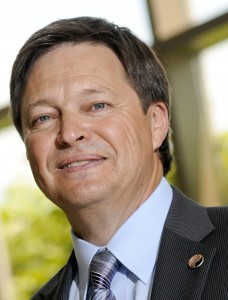
René Mongeau, agr., is President of the Order of Agrologists of Quebec since July 3rd, 2009.
Mr. Mongeau began his career as a coordinator at the Financière agricole du Québec. Then, until August 2009, he was Regional Advisor on field crops and agri-environment at the Regional Directorate of the Western Montérégie of the Quebec Department of Agriculture, Fisheries and Food (MAPAQ).
He is a founding member of the Executive Committee of Agri-rencontres du Haut Richelieu where he worked for 15 years. Mr. Mongeau was Vice-President of the Corn and Oilseed Committee of the Centre de référence en agriculture et agroalimentaire du Québec (CRAAQ), from 2006 to 2009. His accomplishments in agronomic practices, include:
• Integration and development of various income and security programs (crop insurance and income stabilization insurance) for farmers in plant and animal production.
• Sustainable development in agriculture including soils conservation by direct seeding, the reduction of herbicides in crops and establishing buffer strips.
• Winter wheat crop to adapt to climate change.
• Cultivation of switchgrass, a potential plant to reduce agricultural pollution.
Board Member of the Order since 2003, Mr. Mongeau was President of the Order Mentoring Committee. He was Vice-President of the 2012 World Congress of Agronomists, as well as President of the Conference Committee of the 2015 International Farm Management Congress and Chair of the fundraising campaign of Au coeur des familles agricoles to acquire a respite home for farmers in distress (2013-2014).
He is regularly asked to speak at conferences and conventions on topics related to agronomy, agri-environment, the use of new technologies and the protection of agricultural areas as a food source.
He is President of Agrologists Canada, the body that brings together the institutes and nine provincial regulatory organizations in the profession. He is a member of the Executive Committee of the Quebec Interprofessional Council, the collective voice of the 46 professional orders of Quebec.
Mr. Mongeau is a member of the Quebec Order of Agrologists since 1978. He holds a BA from Laval University (1978) in bio-agronomy, option animal sciences.
Michael Toombs, Director of the Research and Innovation Branch, Ontario Ministry of Agriculture, Food and Rural Affairs and General Manager, Agricultural Research Institute of Ontario
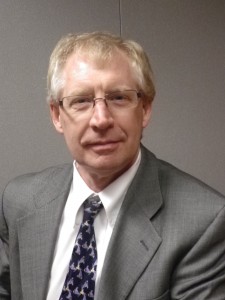
Michael is the Director of the Research and Innovation Branch of the Ministry of Agriculture, Food and Rural Affairs (OMAFRA), as well as the General Manager of the Agricultural Research Institute of Ontario (ARIO), a provincial agency that provides advice to the Minister. This includes research investment, and competitive research initiatives focused on research co-ordination, innovation and knowledge management.
In managing ARIO, Michael is responsible for a number of initiatives: leading teams to implement a capital strategy to revitalize and transform provincial agri-food and bioeconomy research platforms, including the Vineland Research and Innovation Centre and the transformation of the Elora research complex, and the management of the OMAFRA /University of Guelph Partnership Agreement.
He has a background in leading government initiatives that target issues and solutions for the rural and the agriculture sectors. Michael is a professional engineer with an undergraduate degree from Concordia University and a Masters in Water Resource engineering from the University of Guelph.
Workshop 2-B: Maximizing Technological Transfer Wednesday, April 13
How can we be assured that our findings are being used to their full potential by those who would stand to benefit the most? This workshop will discuss ways that agricultural researchers can better engage end-users in the research and development process in order to have a higher return on investment.
In this workshop, panelists and participants will:
1. Examine the key challenges facing technology transfer in agricultural research
2. Compare best practices and lessons learned in technology transfer and adoption
3. Identify opportunities to maximize the impact of new information, processes, products and technologies
Time: 2:45 p.m.
Location: Victoria Ballroom South
Panelists:
Amy Argentino, Manager, Projects and Programs, Canadian Horticultural Council

Amy Argentino has been working with the Canadian Horticultural Council in various roles since 2003 and is currently in the position of Manager, Projects and Programs. She has extensive experience with coordinating projects and government agreements, including her management of CHC’s Agri-Science Cluster for Horticulture 2. The research activities in Cluster 2 bring together expertise from academia, industry and government to address key challenges in the apple and potato industries. Amy also organizes the CHC’s Annual General Meeting. She has a Bachelor of Arts degree in Linguistics from the University of Ottawa.
Dr. Bronwynne Wilton, Consulting Project Lead, Synthesis Agri-Food Network
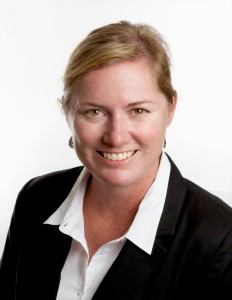
Dr. Bronwynne Wilton brings a unique combination of expertise in the agri-food and rural sectors combined with a practical ability to transform complex ideas into tangible solutions. Through her experience managing a comprehensive knowledge translation and transfer (KTT) program, Bronwynne has worked with researchers across the agri-food and rural sectors to develop and implement effective KTT strategies and outcomes aimed at improving the success of the Ontario agri-food sector as well as improving rural community vitality.
Dr. Wilton holds a PhD in Rural Studies, a Masters of Science in Rural Planning/Landscape Architecture, in addition to a Bachelor of Science in Agriculture.
Theme 3: Intellectual Property Protection, Cooperation and Collaboration
Intellectual property rights have significant effects on the incentives to create and diffuse innovation products and play an important role in shaping how stakeholders involved in agricultural research interact within partnerships. New collaborative partnerships require a balanced approach to the protection of intellectual property that takes into consideration a continuous flow of scientific exchange, high rates of return and the effective communication of research results.
The Theme 3 workshops, Intellectual Property Protection, Cooperation and Collaboration, will help participants outline mechanisms to ensure agricultural research offers a return to scientists and the private sector while protecting publicly-funded research and ensuring technologies and new knowledge meet users’ needs.
Workshop 3-A: IP management in interdisciplinary and cross-sectoral partnerships Thursday, April 14
Intellectual property rights (IPR) add complexity to any partnership, and agricultural research is no different. This workshop will examine the challenges and opportunities that present themselves in agricultural research partnerships, as well as the key issues that need to be addressed before entering into licensing agreements.
In this workshop panelists and participants will:
1. Review current trends in the protection of intellectual property within the agricultural context.
2. Discuss key challenges and opportunities for existing IP policies to support enhanced participation of academia in cross-sectoral partnerships.
3. Establish common guidelines and recommendations on the development of licensing agreements in cross-sectoral partnerships to encourage greater investments and better communication of research results.
Time: 10:15 a.m.
Location: Victoria Ballroom North
Panelists:
Lana Culley, Director, Business Development, Vineland Research and Innovation Centre
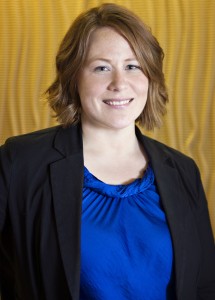
Lana Culley joined Vineland Research and Innovation Centre in 2012 as the Director of Business Development. Vineland’s unique business model requires integration of the business team in research projects from the onset, and Lana works with Vineland’s scientists to implement partnership and intellectual property strategies to enable commercial success and create impact for the Canadian horticulture sector.
Lana has significant experience negotiating collaborative research initiatives, managing intellectual property portfolios and developing licenses for agricultural technologies and plant varieties with commercial partners. She has also played a key role in developing the strategic relationships necessary to create successful long-term programs. Lana has expertise in evaluating research projects and integrating them with business activities to maximize the value of research and development investments.
Professor Chidi Oguamanam, Faculty of Law, University of Ottawa
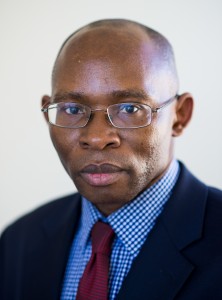
Chidi Oguamanam is a full professorial faculty member at the Centre for Law, Technology and Society and affiliated with the Centre for Environmental Law and Global Sustainability, the Centre for Health Law, Policy and Ethics at the University of Ottawa. Professor Oguamanam obtained his early legal training in Nigeria before completing his graduate (LL.M and Ph.D.) degrees and Canadian practice certification from the University of British Columbia. He is called to the Bar in Nigeria and Canada and has long and ongoing professional legal practice experience.
His practice and research interests focus on various legal and policy issue-linkages to intellectual property law, especially in the areas of biotechnology, biodiversity, genetic resources, pharmaceuticals, agricultural knowledge systems, food security and food systems; public health law and policy; indigenous peoples, indigenous knowledge; human rights and the global governance of knowledge in development contexts.
He is widely published and has authored and co-edited several books in addition to scores of refereed journal articles. His sample publications include International Law and Indigenous Knowledge (University of Toronto Press, 2010); Intellectual Property in Global Governance (Routledge, 2012); Innovation and Intellectual Property: Collaborative Dynamics in Africa (University of Cape Town, 2014) (co-editor).
Workshop 3-B: IP 101 Thursday, April 14
Intellectual property rights (IPR) affect nearly every part of the research process – from initial development to sharing results with other researchers. This workshop will demystify IPR and help you to better understand how the strategic use of patent information and exploitation routes can contribute to greater innovation in the sector. Presentations will also touch on how the Trans Pacific Partnership’s provisions on IPR may impact agricultural research.
In this workshop panelists and participants will:
- Assess the contribution of intellectual property rights to agricultural innovation.
- Identify research practices that capture the exploitable IP of agricultural research projects from inception to commercialization.
- Examine various uses of patent information by researchers, entrepreneurs and commodity-specific industry associations.
- Compare diverse exploitation and utilization routes for agricultural research outputs.
- Explore different options for communicating research based on different IP exploitation routes.
Time: 10:15 a.m.
Location: Victoria Ballroom South
Panelists:
Christine Teixeira, A/Project Coordinator, Examination Practice, Patent Administrative, Policy and International Affairs Division, Canadian Intellectual Property Office
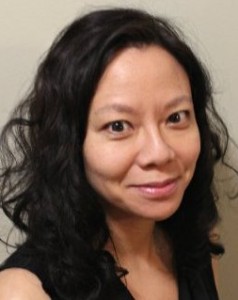
Christine Teixeira obtained her Ph.D. in Pharmacology from the University of Ottawa in 1999. She then went on to complete postdoctoral fellowships, in the Departments of Biochemistry and Clinical Health Sciences, at the University of Alberta. In 2003, Christine transitioned out of academia for a short-lived career as a research scientist with Isotechnika Pharma, a small pharmaceutical company in Edmonton.
In 2004, Christine joined the federal public service as a Patent Examiner with the Canadian Intellectual Property Office (CIPO). During her time at CIPO Christine has had the opportunity to work in several different divisions within the organization, including: as a Senior Patent Examiner in the Biotechnology Division and as a Member of the Patent Appeal Board. Her current position is as the A/Project Coordinator of Examination Practice in the Patent Administrative, Policy and International Affairs Division at CIPO. In this capacity, her work includes the development and dissemination of examination practices within CIPO and involves liaising with both internal and external stakeholders.
Seema Bissoon-Haqqani, Patent Examiner, Canadian Intellectual Property Office
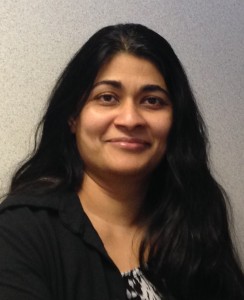
Seema Bissoon-Haqqani obtained her Ph.D. in Biochemistry from University of Ottawa in 2003. She then completed a two-year post-doctoral fellowship at National Research Council of Canada, before joining the Canadian Intellectual Property Office (CIPO) as a Patent Examiner in the Biotechnology Division. In addition to her 10 years’ experience as a Patent Examiner, Seema has worked as the Acting Training Officer for the Examination Sector at CIPO for the past year.
She has been actively involved with the Outreach Branch at CIPO as a strong advocate for IP and Science outreach and in 2012 she was awarded a Diamond Jubilee Medal for her volunteer work in Science Outreach. Seema is also passionate about diversity and inclusion and is an active member of the Innovation Science and Economic Development Canada Inclusiveness Committee.
Jonathan Roch, Partner, Patent and Trademark Agent, MBM Intellectual Property Law LLP

Jonathan Roch is a Partner at MBM Intellectual Property Law, assisting clients with the creation, protection, management, commercialization, licensing and enforcement of their intellectual property rights including patents, trademarks, copyright, industrial designs and trade secrets. Jonathan also represents clients in domain name disputes.
Jonathan has extensive experience drafting and prosecution of patent applications worldwide in a broad range of technologies including biochemistry, medical devices, environmental sciences and general mechanical inventions. Jonathan also has experience in drafting and negotiating intellectual property agreements, including assignment, partnership, agency, service, publishing, manufacturing, design, sales, supply, distribution, consulting, research, development, marketing, employment, independent contractor, non-disclosure, confidentiality and licensing agreements.
Jonathan has been a guest lecturer at the University of Ottawa on exceptions to exclusive rights conferred by patents, the Patented Medicines Price Review Board (PMPRB) and Canada’s Access to Medicines Regime as part of a larger course on intellectual property law as it relates to biotechnology and pharmaceuticals. Jonathan is an Adjunct Professor in the Department of Bachelor of Applied Technology (Biotechnology) at La Cité Collégiale in Ottawa.
Jonathan is a Registered Canadian Patent and Trade-mark Agent and practices in both French and English.
Christine Piché, Director of Business Support, National Research Council of Canada`
Christine Piché has 20 years of experience in the management of Intellectual Property. Her career at the National Research Council of Canada (NRC) began as an Intellectual Property Advisor, working with various inventors to protect and maximize the value of their IP.
Christine is now the Director of Business Support at NRC. She leads a diverse team of professionals responsible for strategic management of NRC’s Intellectual Property, contract management, technical business services as well as client relationship management.
Christine is a Patent Agent registered to practice in both Canada and the US. She also holds an MBA and a Bachelor’s degree in Electrical Engineering from the University of Ottawa.

